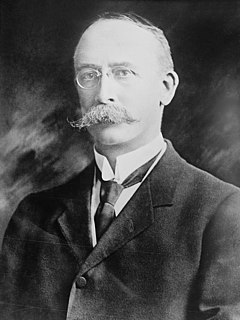Top 1200 Condolences And Sympathy Quotes & Sayings - Page 20
Explore popular Condolences And Sympathy quotes.
Last updated on April 20, 2025.
How can one be compassionate if you belong to any religion, follow any guru, believe in something, believe in your scriptures, and so on, attached to a conclusion? When you accept your guru, you have come to a conclusion, or when you strongly believe in god or in a saviour, this or that, can there be compassion? You may do social work, help the poor out of pity, out of sympathy, out of charity, but is all that love and compassion?
Without religion, man is an atheist, woman is a monster. As daughter, sister, wife and mother, she holds in her hands, under God, the destinies of humanity. In the hours of gloom and sorrow we look to her for sympathy and comfort. Where shall she find strength for trial, comfort for sorrow, save in that gospel which has given a new meaning to the name of "mother," since it rested on the lips of the child Jesus?
The soul grows into lovely habits as easily as into ugly ones, and the moment a life begins to blossom into beautiful words and deeds, that moment a new standard of conduct is established, and your eager neighbors look to you for a continuous manifestation of the good cheer, the sympathy, the ready wit, the comradeship, or the inspiration, you once showed yourself capable of. Bear figs for a season or two, and the world outside the orchard is very unwilling you should bear thistles.
Many times I am asked why the suffering of animals should call forth more sympathy from me than the suffering of human beings; why I work in this direction of charitable work more than toward any other. My answer is that because I believe that this work includes all the education and lines of reform which are needed to make a perfect circle of peace and goodwill about the Earth.
It's very easy for me to feel sympathy for people who are messed up. It's not that I'm a pseudo-saint or a great person. I had a lot of trouble with drugs and alcohol when I was younger, and I know how easy it can be to mess up the rest of your life. One bad turn, one bad night, one big mistake, and everything is screwed up. Or maybe you were just born in the wrong house and raised in a bad way. I guess I can understand.
For the far higher task of teaching fortitude and patience I was never fool enough to suppose myself qualified, nor have I anything to offer my readers except my conviction that when pain is to be borne, a little courage helps more than much knowledge, a little human sympathy more than much courage, and the least tincture of the love of God more than all.
You know all that sympathy that you feel for an abused child who suffers without a good mom or dad to love and care for them? Well, they don't stay children forever. No one magically becomes an adult the day they turn eighteen. Some people grow up sooner, many grow up later. Some never really do. But just remember that some people in this world are older versions of those same kids we cry for.
One of the most terrible things about the English education System in Ireland is its ruthlessness...it is cold and mechanical, like the ruthlessness of an immensely powerful engine. A machine vast, complicated... It grinds night and day; it obeys immutable and predetermined laws; it is as devoid of understanding, of sympathy, of imagination, as is any other piece of machinery that performs an appointed task. Into it is fed all raw human material in Ireland; it seizes upon it inexorably and rends and compresses and remoulds...
Most British playwrights of my generation, as well as younger folks, apparently feel somewhat obliged to Russian literature - and not only those writing for theatres. Russian literature is part of the basic background knowledge for any writer. So there is nothing exceptional in the interest I had towards Russian literature and theatre. Frankly, I couldn't image what a culture would be like without sympathy towards Russian literature and Russia, whether we'd be talking about drama or Djagilev.
Lust, that state commonly known as 'being in love,' is a kind of madness. It is a distortion of reality so remarkable that it should, by rights, enable most of us to understand the other forms of lunacy with the sympathy of fellow-sufferers. But, paradoxically, mad and suffering as one is, and the heat of the flame, few of us are glad as we feel that passion slip away No, while most people have been at their unhappiest when in love, it is nevertheless the state the human being yearns for above all.
I grow savager and savager every day, as if fed on raw meat, and my tameness is only the repose of untamableness. I dream of looking abroad summer and winter, with free gaze, from some mountain-side,... to be nature looking into nature with such easy sympathy as the blue-eyed grass in the meadow looks in the face of the sky. From some such recess I would put forth sublime thoughts daily, as the plant puts forth leaves.
The integrative tendencies of the individual operate through the mechanisms of empathy, sympathy, projection, introjection, identification, worship- all of which make him feel that he is a part of some larger entity which transcends the boundaries of the individual self. This psychological urge to belong, to participate, to commune is as primary and real as its opposite. The all-important question is the nature of that higher entity of which the individual feels himself a part.
Compassion does not only refine and civilize human nature, but has something in it more pleasing and agreeable, than what can be met with in such an indolent happiness, such an indifference to mankind, as that in which the stoics placed their wisdom. As love is the most delightful passion, pity is nothing else but love softened by a degree of sorrow: In short, it is a kind of pleasing anguish, anguish as well as generous sympathy, that knits mankind together, and blends them in the same common lot.
Isn't it grand, isn't it good, that language has only one word for everything we associate with love - from utter sanctity to the most fleshly lust? The result is perfect clarity in ambiguity, for love cannot be disembodied even in its most sanctified forms, nor is it without sanctity even at its most fleshly. Love is always simply itself, both as a subtle affirmation of life and as the highest passion; love is our sympathy with organic life.
Obviously, therefore, we must be able to transcribe what is in us into our mental and objective consciousness, by establishing a relationship between the life in us and observation of that life in Nature. This we find supremely well expressed by the ancient Egyptians. It is a knowledge of magic, pure and sane, which can lead rapidly toward the spiritual goal of our lives, owing to the fact that we can evoke, by means of the sympathy of analogues in our surroundings, the consciousness of the heart latent in us.
For with my intuition I knew that this man was repeating a pattern over and over again: courting a woman with his intelligence and sympathy, claiming her emotionally; then, when she began to claim in return, running away. And the better a woman was, the sooner he would begin to run. I knew this with my intuition, and yet I sat there in my dark room, looking at the hazed wet brilliance of the purple London night sky, longing with my whole being.
Jesus' whole life and mission involve accepting powerlessness and revealing in this powerlessness the limitlessness of God's love. Here we see what compassion means. It is not a bending toward the underprivileged from a privileged position; it is not a reaching out from on high to those who are less fortunate below; it is not a gesture of sympathy or pity for those who fail to make it in the upward pull. On the contrary, compassion means going directly to those people and places where suffering is most acute and building a home there.
The secret of success in society is a certain heartiness and sympathy. A man who is not happy in company, cannot find any word in his memory that will fit the occasion; all his information is a little impertinent. A man who is happy there, finds in every turn of the conversation occasions for the introduction of what he has to say. The favorites of society are able men, and of more spirit than wit, who have no uncomfortable egotism, but who exactly fill the hour and the company, contended and contenting.
Loneliness is necessary for pure poetry. When someone intrudes into the poet's life (and any sudden personal contact, whether in the bed or in the heart, is an intrusion) the poet loses his or her balance for a moment, slips into being what he or she is, uses his or her poetry as one would use money or sympathy. The person who writes the poetry emerges, tentatively, like a hermit crab from a conch shell. The poet, for that instant, ceases to be a dead person.
Once in a rare while, you get to read a story of such breathtaking beauty and intelligence that you remember why you love to read. The Anatomy Lesson is just such a novel. In stunning prose, Nina Siegal animates Rembrandt's first masterpiece, spinning a deeply affecting tale of love, loss and redemption as she reveals the secrets of the human soul. It is a gorgeous literary page turner of immense sympathy and elegance, equal in artistic lan to its inspiration. Brava!
Germany is not the only country that one could call post-heroic. But there is an additional aspect for Germany when it comes to this generally Western stance - one which Vladimir Putin would call decadent. For almost four-and-a-half decades after World War II, we didn't have full sovereignty. During this period, we existed in a niche of global politics. This experience of limited sovereignty continues to have an effect. Many Germans still have sympathy for the idea that Germany can exist as something like a large Switzerland in the middle of Europe.
Whenever education and refinement carry us away from the common people, they are growing towards selfishness, which is the monster evil of the world. That is true cultivation which gives us sympathy with every form of human life, and enables us to work most successfully for its advancement. Refinement that carries us away from our fellow people is not God's refinement.
Roth Unbound is filled with intelligent readings and smart judgments. Because of the author's sympathy and sharp mind, it offers real insight into the creative process itself, and into Philip Roth's high calling as a great American artist. The book is, in some ways, a radical rereading of Roth's life and his work. It is impossible, by the end, not to feel a tender admiration for Roth as a novelist and indeed for Claudia Roth Pierpont as an empathetic and brilliant critic.
A man's social and spiritual discipline must answer to his corporeal. He must lean on a friend who has a hard breast, as he wouldlie on a hard bed. He must drink cold water for his only beverage. So he must not hear sweetened and colored words, but pure and refreshing truths. He must daily bathe in truth cold as spring water, not warmed by the sympathy of friends.
There is first the literature of knowledge, and secondly, the literature of power. The function of the first is--to teach; the function of the second is--to move, the first is a rudder, the second an oar or a sail. The first speaks to the mere discursive understanding; the second speaks ultimately, it may happen, to the higher understanding or reason, but always through affections of pleasure and sympathy.
Advice on evangelism needs to be tailored to individual situations. For instance, I know someone who needs to be encouraged to speak less and work more. That would be a better testimony for him because he has certainly let his work colleagues know about Jesus. It's not that I don't want him to witness about Jesus, but I have a lot of sympathy for his employer. He is paying for work to be done.
I do not want to know what you will hope for. I want to know what you will work for. I do not want your sympathy for the needs of humanity. I want your muscle. As the wagon driver said when they came to a long, hard hill: ‘Them that’s going on with us, get out and push. Them that ain’t, get out of the way’.
Margaret had always dreaded lest her courage should fail her in any emergency, and she should be proved to be, what she dreaded lest she was--a coward. But now, in this real great time of reasonable fear and nearness of terror, she forgot herself, and felt only an intense sympathy--intense to painfulness--in the interests of the moment.
Social evolution is a resultant of the interaction of two wholly distinct factors: the individual ... bearing all the power of initiative and origination in his hands; and, second, the social environment with its power of adopting or rejecting both him and his gifts. Both factors are essential to change. The community stagnates without the impulse of the individual. The impulse dies away without the sympathy of the community.
There is a popular superstition that "realism" asserts itself in the cataloguing of a great number of material objects, in explaining mechanical processes, the methods of operating manufactories and trades, and in minutely and unsparingly describing physical sensations. But is not realism, more than it is anything else, an attitude of mind on the part of the writer toward his material, a vague indication of the sympathy and candour with which he accepts, rather than chooses, his theme?
Everything Bill Clinton has done is fair game. He's a former president. I just don't think that is the most effective way to beat Hillary Clinton, because while all that was going on there were a lot of women who felt for whatever reason great sympathy for Hillary Clinton. Look, if my husband were doing that, I would have left him. I would not have behaved the way Hillary Clinton did.
Applause is an instinctive, unconscious act expressing the sympathy between actors and audience. Just as our art demands more instinct than intellect in its exercise, so we demand of those who watch us an apppreciation of the simple unconscious kind which finds an outlet in clapping rather than the cold intellectual approval which would self-consciously think applause derogatory. I have yet to meet the actor who was sincere in saying that he disliked applause.
Grace in women has more effect than beauty. We sometimes see a certain fine self-possession, an habitual voluptuousness of character, which reposes on its own sensations and derives pleasure from all around it, that is more irresistible than any other attraction. There is an air of languid enjoyment in such persons, "in their eyes, in their arms, and their hands, and their face," which robs us of ourselves, and draws us by a secret sympathy towards them.
In order to get inside their skin, I have to identify with them. That includes even the ones who are complete bastards, nasty, twisted, deeply flawed human beings with serious psychological problems. Even them. When I get inside their skin and look out through their eyes, I have to feel a certain - if not sympathy, certainly empathy for them. I have to try to perceive the world as they do, and that creates a certain amount of affection.
The nature of men and of organized society dictates the maintenance in every field of action of the highest and purest standards of justice and of right dealing.... By justice the lawyer generally means the prompt, fair, and open application of impartial rules; but we call ours a Christian civilization, and a Christian conception of justice must be much higher. It must include sympathy and helpfulness and a willingness to forego self-interest in order to promote the welfare, happiness, and contentment of others and of the community as a whole.
The great renunciation of old age as it prepared for death, wraps itself up in its chrysalis, which may be observed at the end of lives that are at all prolonged, even in old lovers who have lived for one another, in old friends bound by the closest ties of mutual sympathy, who, after a certain year, cease to make the necessary journey or even to cross the street to see one another, cease to correspond, and know that they will communicate no more in this world.
What a position of transcendent horror must that be, where the perpetrator of a great crime, till then a stranger to positive guilt, finds himself suddenly cut off, and forever, from all human sympathy, isolated from hope, the tenant of a solitary cell, and with a wide, impassable gulf yawning between him and that great brotherhood of which he has ceased to be a part--no longer regarded as a man, but as a monster in the shape of one, from whom Mercy herself turns away, and for whom Pity even has no tears!
The mark of man is initiative, but the mark of woman is cooperation. Man talks about freedom; woman about sympathy, love, sacrifice. Man cooperates with nature; woman cooperates with God. Man was called to till the earth, to "rule over the earth"; woman to be the bearer of a life that comes from God.
Personal sympathy has helped me on very much. My husband from first to last has watched every picture with delight, and it is my daily habit to run to him with every glass upon which a fresh glory is newly stamped, and to listen to his enthusiastic applause. This habit of running into the dining-room with my wet pictures has stained such an immense quantity of table linen with nitrate of silver, indelible stains, that I should have been banished from any less indulgent household.
It takes courage to care for others, because people who care run the risk of being hurt. It's not easy to let your guard down, open your heart, react with sympathy or compassion or indignation or enthusiasm when usually it's much easier-and sometimes much safer-not to get involved. People who take the risk make a tremendous discovery: The more things you care about, and the more intensely you care, the more alive you are.
The pleasant converse of the fireside, the simple songs of home, the words of encouragement as I bend over my school-tasks, the kiss as I lie down to rest, the patient bearing with the freaks of my restless nature, the gentle counsels mingled with reproofs and approvals, the sympathy that meets and assuages every sorrow, and sweetens every little success--all these return to me amid the responsibilities which press upon me now, and I feel as if I had once lived in heaven, and, straying, had lost my way.
I am compassionate. I allow my heart and imagination to embrace the difficulties and concerns of others. While maintaining my own balance, I find it within myself to extend sympathy, attention, and support. When they are grieved, I listen with openness and gentle strength. I offer loyalty, friendship, and human understanding. Without undermining or enabling, I aid and assist others to find their strength. I allow the healing power of the Universe to flow through me, soothing the hearts and feelings of those I encounter.
This is our problem, our dilemma, yes? We cannot celebrate and declare ourselves to belong to the victorious nations because our brothers and our fathers and grandfathers died in this battle [in Normandy], yes. I understand that the Americans and the British and French celebrate one of the greatest and most important military victories in history. And I understand this. I don't see a reasonable place for the Germans. We watch everything on the television with compassion and sympathy.
Conversation in its happiest development is a link, equally exquisite and adequate, between mind and mind, a system by which men approach one another with sympathy and enjoyment, a field for the finest amenities of civilization, for the keenest and most intelligent display of social activity. It is also our solace, our inspiration, and our most rational pleasure. It is a duty we owe to one another; it is our common debt to humanity.
This was the first time that he has ever looked into the labyrinth of the human soul. He was very far from understanding what he saw. But what was of more value, he felt and suffered with her. In years that were yet to come, he relived this memory in song, in the most beautiful song this world has known. For the understanding of the soul's defencelessness, of the conflict between the two poles, is not the source of the greatest song. The source of the greatest song is sympathy.
Like every other destruction of optimism, whether in a whole civilisation or in a single individual, these must have been unspeakable catastrophes for those who had dared to expect progress. But we should feel more than sympathy for those people. We should take it personally. For if any of those earlier experiments in optimism had succeeded, our species would be exploring the stars by now, and you and I would be immortal.
It is Satan's work to fill men's hearts with doubt. He leads them to look upon God as a stern judge. He tempts them to sin, and then to regard themselves as too vile to approach their heavenly Father or to excite His pity. The Lord understands all this. Jesus assures His disciples of God's sympathy for them in their needs and weaknesses. Not a sigh is breathed, not a pain felt, not a grief pierces the soul, but the throb vibrates to the Father's heart.
If a wave of service sweeps over the land, catching everyone in its enthusiasm, it will be able to wipe off the mounds of hatred, malice and greed that infest the World. Attune your hearts so that it will vibrate in sympathy with the woes and joys of your fellow-men. Fill the World with Love. Love will warn you against advising another to do something which you yourself are unwilling to do; your conscience will tell you that you are living in a lie!
The indescribable innocence and beneficence of Nature-of sun and wind and rain, of summer and winter-such health, such cheer, they afford forever! and such sympathy have they ever with our race, that all Nature would be affected, and the sun's brightness fade, and the winds would sigh humanely, and the clouds rain tears, and the woods shed their leaves and put on mourning in midsummer, if any man should ever for a just cause grieve.
The essence of Christianity is the appeal to the life of Christ as a revelation of the nature of God and of God's agency in the world. The record is fragmentary, inconsistent, and uncertain. . . . But there can be no doubt as to what elements in the record have evoked a response from all that is best in human nature. The Mother, the Child, and the bare manger: the lowly man, homeless and self-forgetful, with his message of peace, love, and sympathy: the suffering, the agony, the tender words as life ebbed, the final despair: and the whole with the authority of supreme victory.
It was necessary to put the South at a moral disadvantage by transforming the contest from a war waged against states fighting for their indepdence into a war waged against states fighting for the maintenance and extension of slavery...and the world, it might be hoped, would see it as a moral war, not a political; and the sympathy of nations would begin to run for the North, not for the South.
The full horror of what has happened in the United States earlier today is now becoming clearer. It is hard even to contemplate the utter carnage and terror which has engulfed so many innocent people. We've offered President Bush and the American people our solidarity, our profound sympathy, and our prayers. But it is plain that citizens of many countries round the world, including Britain, will have been caught up in this terror.
It is a painful thing to say to oneself: by choosing one road I am turning my back on a thousand others. Everything is interesting; everything might be useful; everything attracts and charms a noble mind; but death is before us; mind and matter make their demands; willy-nilly we must submit and rest content as to things that time and wisdom deny us, with a glance of sympathy which is another act of our homage to the truth.
The problem isn't who is in charge. It's what is in charge. The problem is that people are encouraged to function as machines. Or, actually, as mechanisms. Human emotion and sympathy are unprofessional. They are inappropriate to the exercise of reason. Everything which makes people good - makes them human - is ruled out. The system doesn't care about people, but we treat it as if it were one of us, as if it were the sum of our goods and not the product of our least admirable compromises.
His words even imply that philanthropy has deeper depths than is generally realized. The great emotions of compassion and mercy are traced to Him; there is more to human deeds than the doers are aware. He identified every act of kindness as an expression of sympathy with Himself. All kindnesses are either done explicitly or implicitly in His name, or they are refused explicitly or implicitly in His name.
They mustn't know my despair, I can't let them see the wounds which they have caused, I couldn't bear their sympathy and their kind-hearted jokes, it would only make me want to scream all the more. If I talk, everyone thinks I'm showing off; when I'm silent they think I'm ridiculous; rude if I answer, sly if I get a good idea, lazy if I'm tired, selfish if I eat a mouthful more than I should, stupid, cowardly, crafty, etc. etc.
Yes," Marcus says. "I understand that you are concerned -- that you all are concerned. You had never heard of the Divergent a week ago, and now all that you know is that they are immune to something to which you are susceptible, and that is a frightening thing. But I can assure you that there is nothing to be afraid of, as far as we are concerned." As he speaks, his head tilts and his eyebrows lift in sympathy, and I understand at once why some people like him. He makes you feel that if you just placed everything in his hands, he would take care of it.
[Comics is] one of the last havens for honesty when it comes to a reader's genuine response to art. Most of us, if we don't find any sympathy or pleasure, for example, in a modern painting, are likely to blame our own ignorance of the history and theory of painting. But nobody pretends to like a bad comic strip. Such harshness is necessary for any real truth to surface, I think, and for art to really contribute anything to life. Though I don't know. I could be wrong.
There are times in a person's life when he or she must make a choice to believe. I choose to believe the sun will rise tomorrow. I also choose to believe that if you go to bed hungry you will wake up ready to eat. I've met a group of men in a faraway country who choose to believe that if you stand on a tree stump for an hour you will gain sympathy for trees. I am already quite sympathetic to trees, so I choose to think they are bonkers.























































